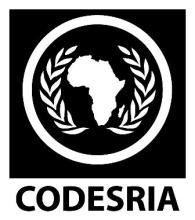L’accès durable des paysans à la terre : quel peut être l’apport des coopératives à la lutte contre l’accaparement des terres en Afrique ?
Resource information
Date of publication
December 2015
Resource Language
ISBN / Resource ID
uneca:10855/23259
Depuis plusieurs années, on remarque une ruée sur les terres cultivables en Afrique. Ce déferlement peut s’expliquer par diverses raisons, telles que la recherche de nouvelles rentabilités à la suite de la crise financière actuelle, l’accroissement de l’investissement agricole pour assurer la sécurité alimentaire, l’encouragement de l’agrocarburant, etc. Toutefois, le phénomène n’est pas sans conséquence sur le bien-être des paysans locaux. Ces derniers, généralement réunis autour de sociétés coopératives, peuvent défendre leurs intérêts à travers diverses formes d’actions. À cet effet, le mouvement coopératif peut jouer un rôle important dans la lutte contre le phénomène de l’accaparement des terres en Afrique.
Data Provider
Geographical focus



